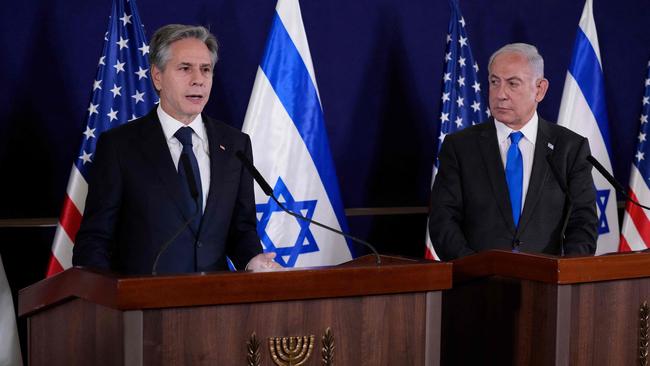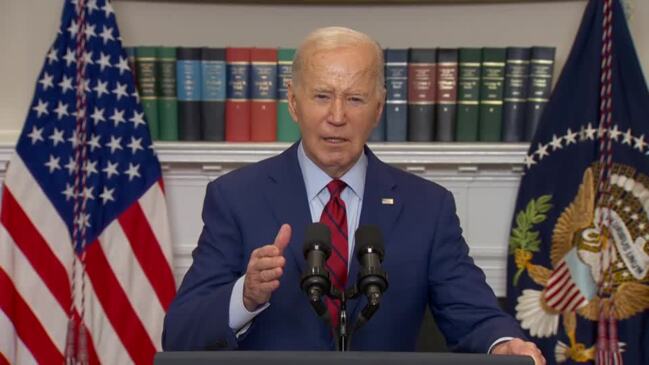Fate of Gaza ceasefire talks hangs on two hardliners: Benjamin Netanyahu and Yahya Sinwar
Netanyahu has seen his polling numbers stabilise as the conflict drags on, while Sinwar believes he can hold out in Gaza’s tunnels even if Israel launches an assault on Rafah.

The fate of a deal that would free Israeli hostages and stop the war in Gaza is now in the hands of two leaders whose future is at stake in the war: Israeli Prime Minister Benjamin Netanyahu and Hamas’s top leader in Gaza, Yahya Sinwar.
Netanyahu, who faced criticism within Israel over the security and intelligence failures around Hamas’s Oct. 7 attack that sparked the war, has seen his sinking polling numbers stabilise as the conflict drags on, despite the international pressure that is piling on him. He is now concerned about the possibility that the International Criminal Court could indict him for alleged war crimes, an outcome he has rejected as an assault on Israel’s right to self-defence. Stopping the fighting risks a political reckoning that could eventually push him from power.
Sinwar, who Israel believes is hiding in Hamas’s tunnels deep underneath Gaza, has survived Israel’s heavy bombardment and believes he can hold out even if Israel launches its threatened assault on the city of Rafah, according to Arab negotiators dealing with him. He too could be indicted by the ICC. His ultimate aim, mediators involved in the talks say, is to secure the release of hundreds, if not thousands, of Palestinian prisoners in a swap for the hostages and secure a deal to end the war and ensure Hamas’s survival. Sinwar is expected to reject any deal that doesn’t include a credible path to ending the war.
The calculations of both men, hardliners whose war strategies have left them little room to reach a compromise, pose a challenge for the Biden administration, which has been working to free the hostages and secure a ceasefire. President Biden, under pressure within his party over the death and destruction in Gaza, is facing a tight re-election bid in November and discord on U.S. college campuses as students protest Israel’s war in Gaza.
Negotiations over a ceasefire deal are at a critical point. The Israeli government has said it plans to send forces into Rafah, a city at the southern edge of the Gaza Strip where more than a million Palestinian civilians are sheltering. Rafah’s border crossing with Egypt is also a lifeline bringing humanitarian aid to the people of Gaza, many of whom are on the edge of starvation. Netanyahu says the operation is necessary to destroy Hamas’s remaining military forces in the area.
Mediators say dealing with both Netanyahu and Sinwar is a difficult task. The Israeli prime minister wants to extend his decadeslong run as one of Israel’s most dominant leaders. A polarising figure, he survived nationwide protests last year against his attempt to diminish the independence of the judiciary and faces a continuing trial on corruption charges that he denies. Recent polls show that a majority of Israelis want him to resign, but he likely believes his chances of political survival have improved since the early days of the war, analysts say.
“He only has one aim and that’s his political survival and that dictates everything. And that means there won’t be any cease-fire-hostage deal if it’s up to him,” said Alon Pinkas, a former senior Israeli diplomat. “He’s in a bind right now.”
Sinwar, who learned Hebrew during his two decades in Israeli prison and was freed in a previous prisoner exchange, has led Hamas in Gaza during a period in which it has built up its forces and strengthened ties with Iran. Since Hamas launched the Oct. 7 attack, he too has defied the odds, holding out as the Israeli military launched thousands of artillery and air strikes on Gaza. Though Hamas’s forces have been battered by the Israeli offensive, he likely believes he and his organisation can hold out for months and even years of conflict, analysts say.
“Time, tunnels and hostages [are] giving Sinwar the feeling that he doesn’t have to [do a deal],” said Aaron David Miller, a senior fellow with the Carnegie Endowment for International Peace, referring to the military advantage that the large underground network of tunnels has been for Hamas and its ability to fight an insurgency.
According to Arab mediators dealing with Hamas, Sinwar believes that he has already won the war, whether or not he survives it, by opening the world’s eyes to the suffering of Palestinians and bringing the conflict to the forefront of global affairs.
Sinwar’s aim in the long run, the mediators say, is to lift the siege of the strip, end Israeli military pressure on Hamas and ensure the group’s survival. The group is seeking international “guarantees” for any ceasefire, another gambit to ensure its survival after the war. The U.S., Qatar and Egypt would be the guarantors of the proposed deal, but Hamas has said this isn’t enough, according to the mediators.
In some of the communications relayed by the military wing to Arab mediators, Sinwar indicated that time was on his side and that the longer he waits, the more international pressure builds on Israel and its activities in Gaza. He is also banking on conflict within the Israeli government to eventually force Netanyahu from power.
Without a full ceasefire, Sinwar gains more from waiting for a better deal than he would gain by agreeing to one that doesn’t ensure his own survival or the ability of Hamas to reconstitute itself, said Maj. Gen. Tamir Hayman, a former head of Israeli military intelligence and executive director of the Tel Aviv-based Institute for National Security Studies.
“Right now, the No. 1 priority [for Hamas] is stopping the war,” he said. Egyptian officials said Thursday that they invited senior Hamas officials from the group’s exiled leadership in Qatar to return to Cairo in the coming days to continue the negotiations. The group’s leaders have been considering the Egyptian-backed proposal in recent days.
Netanyahu earlier this week said Israel would launch a Rafah operation whether or not the two sides strike a ceasefire deal. In talks with officials in Cairo, Israeli negotiators have also quietly walked back a pledge to hold talks over a possible long-term ceasefire, Egyptian officials said. The Israeli prime minister’s office declined to comment.
Netanyahu, who is under pressure from ultranationalist coalition partners, said he wouldn’t accept any deal that ends the war, arguing that a long-term truce would allow Hamas to survive. Israeli and American intelligence officials and military analysts say the group is likely to survive the war regardless of whether the Rafah operation takes place.
Netanyahu’s comments, along with issues arising in the negotiations in Cairo, have dimmed some of the optimism that arose last week after Egyptian intelligence officials returned from Israel with a new proposal for a ceasefire following talks with Israeli officials. The proposed deal, similar to previous ones, calls for an initial period of calm of up to 40 days in which Hamas would release up to 33 hostages, with the possible negotiation of a long-term ceasefire to follow.

The U.S. and other Western powers have warned Israel against launching any major military operation in Rafah without a credible plan to protect the many civilians who have fled there during the war.
Secretary of State Antony Blinken, visiting Israel on Wednesday, reiterated that it was up to Hamas to accept the ceasefire deal that is on the table. Asked about the Israeli prime minister’s threats to attack Rafah regardless, he said Netanyahu could speak for himself. “Hamas will have to make its own judgments,” about the threats on Rafah, he told reporters at the port of Ashdod.
Another Hamas leader, Osama Hamdan, who is based in Lebanon and acts as a spokesman for the militant group, said the negotiations would come to a halt if Israel attacked Rafah. “The resistance does not negotiate under fire,” he told Lebanon’s Al-Manar TV, a station affiliated with the Lebanese militant group Hezbollah.
Netanyahu is also facing domestic pressure to reach a deal to free some of the 129 hostages taken on Oct. 7 who remain in Gaza. Protests in recent weeks have grown angrier as families of hostages become more desperate, with some blocking a Tel Aviv highway on Thursday morning demanding to free their relatives.
A poll from Israel’s public broadcaster Kan found that 54 per cent of respondents support a deal that would free 30 Israeli hostages in exchange for hundreds of Palestinian prisoners. Some 53 per cent said Netanyahu isn’t doing enough to ensure the release of the hostages.
Israel’s positive response to the most recent ceasefire proposal after a period of quiet in the negotiations was surprising but there is also a worry that Israel’s current approach to the negotiations could be a way for Netanyahu to buy time and then raise issues when it gets down to the details, said an official briefed on the talks.
There is deep frustration among negotiators from previous rounds of talks when it was felt that Netanyahu opposed any deal, the official said, adding that at times progress made with Israeli technical teams in Qatar amounted to nothing after the Israeli government wouldn’t give its approval.
“If Sinwar says yes, that will create probably the most difficult political moment for [Netanyahu’s] coalition since the beginning of the war,” and could bring down the government, said Yohanan Plesner, president of the Israel Democracy Institute.
Dow Jones



To join the conversation, please log in. Don't have an account? Register
Join the conversation, you are commenting as Logout